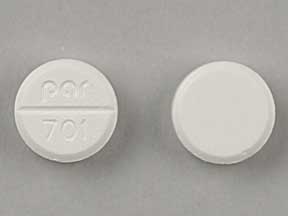
Clomid Coupons & Savings Card – Discount Prices from $50.17
Brand for: Clomiphene
My prescription
Edit
50MG, Clomiphene (15 Tablets)
Select pharmacy

CVS
$185.00
COUPON PRICE
Walgreens
$50.17
COUPON PRICE
Albertsons
$106.19
COUPON PRICE
Walmart
$110.91
COUPON PRICEClomid savings card
Show this card to your pharmacist
Walgreens
$50.17
BIN
ID
PCN
GRP
011867
LH2353E30F
HT
LABH001
Powered by
Related estrogen agonist/antagonists prescriptions
More prescriptions for pcos
Related estrogen agonist/antagonists prescriptions
More prescriptions for pcos
Price history for Clomid (brand) & Clomiphene (generic)
15 Tablets, 50MG
Average retail price for Clomid
Average retail price for Clomiphene
Average SaveHealth price for Clomiphene
Our price history data is based on aggregated prescription data collected from participating pharmacies in America. Our prescription data updates daily to reflect the latest price changes. If you notice a missing data point, it means there wasn't sufficient data available to generate a monetary value for that date.
Over the last 12 months, the average discount price of Clomid is $228.48 using the SaveHealth savings card. That's an average savings of -9.45% on Clomid with our discount card.
*Retail prices are based on pharmacy claims data, and may not be accurate when we don't have enough claims.
Clomid (Clomiphene) dosage forms
Dosage Quantity Price from Per unit 50MG 15 Tablets $106.80 $7.12 50MG 10 Tablets $74.20 $7.42 50MG 30 Tablets $204.60 $6.82 50MG 40 Tablets $269.80 $6.75
| Dosage | Quantity | Price from | Per unit |
|---|---|---|---|
| 50MG | 15 Tablets | $106.80 | $7.12 |
| 50MG | 10 Tablets | $74.20 | $7.42 |
| 50MG | 30 Tablets | $204.60 | $6.82 |
| 50MG | 40 Tablets | $269.80 | $6.75 |
What does Clomid do exactly?
Clomid, or clomiphene citrate, is a medication commonly used to treat infertility in women. It works by stimulating the release of hormones necessary for ovulation to occur. Clomid blocks estrogen receptors in the brain, which leads to an increase in the release of follicle-stimulating hormone (FSH) and luteinizing hormone (LH) from the pituitary gland. This hormonal increase encourages the growth and maturation of ovarian follicles, promoting ovulation.
Why would a man take Clomid?
Clomid, or clomiphene citrate, is sometimes prescribed to men to treat male infertility. It can help increase testosterone levels and improve sperm production in men with low testosterone or certain types of hypogonadism. By stimulating the pituitary gland, Clomid can enhance the production of hormones that are crucial for sperm production.
Can Clomid cause twins?
Yes, Clomid (clomiphene citrate) can increase the likelihood of having twins. It stimulates ovulation, which can sometimes result in the release of more than one egg, thereby increasing the chances of multiple pregnancies, such as twins. However, the overall risk of having twins with Clomid is relatively low, around 5-10%.
What are the odds of having twins on Clomid?
The odds of having twins while taking Clomid (clomiphene citrate) are approximately 5% to 10%. Clomid is a medication used to stimulate ovulation, and it increases the likelihood of multiple ovulations, which can lead to multiple pregnancies such as twins.
Why do doctors prescribe Clomid for men?
Doctors may prescribe Clomid (clomiphene citrate) for men to treat certain types of male infertility. Clomid can help increase testosterone levels and improve sperm production by stimulating the pituitary gland to produce more luteinizing hormone (LH) and follicle-stimulating hormone (FSH). This can be beneficial for men with low testosterone levels or those with certain hormonal imbalances affecting fertility.
